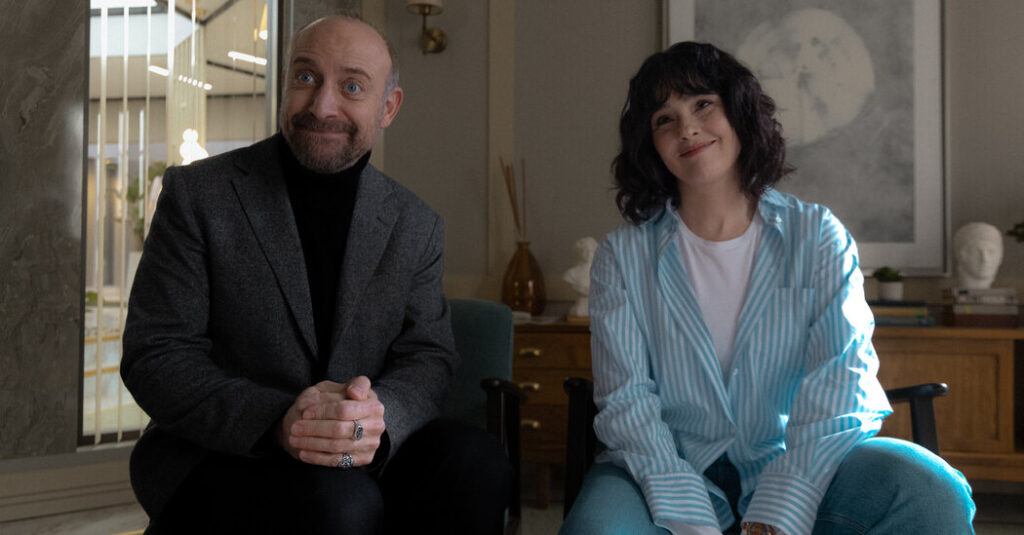“Lovers Anonymous” is an eight-episode Turkish dramedy about the “disease of love” — treatable at the Love Hospital, thank goodness, under the dedicated care of specialists. Though perhaps the cure isn’t all that wonderful.
The show (in Turkish, with subtitles, or dubbed), available on Netflix, centers on Cem (Halit Ergenc), the embittered genius behind the facility’s techniques. His life is a bonanza of Freudian strife, beginning with his parents’ divorce and continuing with his contentious relationship with his mother. He categorizes different kinds of love — young love, “stupid love,” “any port in a storm” love but described more crudely — and each has a scientific treatment protocol to alleviate the symptoms and return one to a life of self-possession and sanity. The heart monitors aren’t tracking only cardiac activity: Alongside the spikes and valleys of an EKG, the paper readouts also have the outlines of hearts, a measurement of one’s romantic health.
Cem is also pulling a weird Cyrano act at the beginning of the show. A faux-Cem is the public face of the organization and treats the patients, while the real Cem murmurs instructions through an ear piece. But the farce hits a snag, and once the jig is up, there’s room for a new love doctor in town: Hazal (Funda Eryigit).
Except Hazal loves love. Hazal’s specialty is finding people’s soul mates, and her methods incorporate smell, horoscopes and kooky social engineering. She wears goofy turtlenecks and patterned berets, but she and Cem maybe aren’t so different: Her relationship with her father casts a shadow over her whole existence. Also her father is the chief administrator for the Love Hospital and is Cem’s sort-of boss.
Along with its serialized plots, “Lovers” also has episodic arcs, with various patients facing critical heartache: the womanizing rock star who suddenly finds himself waiting by the phone, beholden to an indifferent lover; the flight attendant whose drippy boyfriend cheated on her, which has soured her on love in general; a woman who wonders if there’s any point in rekindling the spark with her husband.
The show is its most fun as an exaggerated fable, with Cem and Hazal perched on each patient’s shoulder, arguing about love’s merits and pitfalls. “Lovers Anonymous” can be silly and zany, and it occasionally floats into dreaminess in its depiction of cute romance and fluttering hearts. But it can also be biting and festively cynical about the contrivances of modern love and about the hucksterism endemic to much of society.


